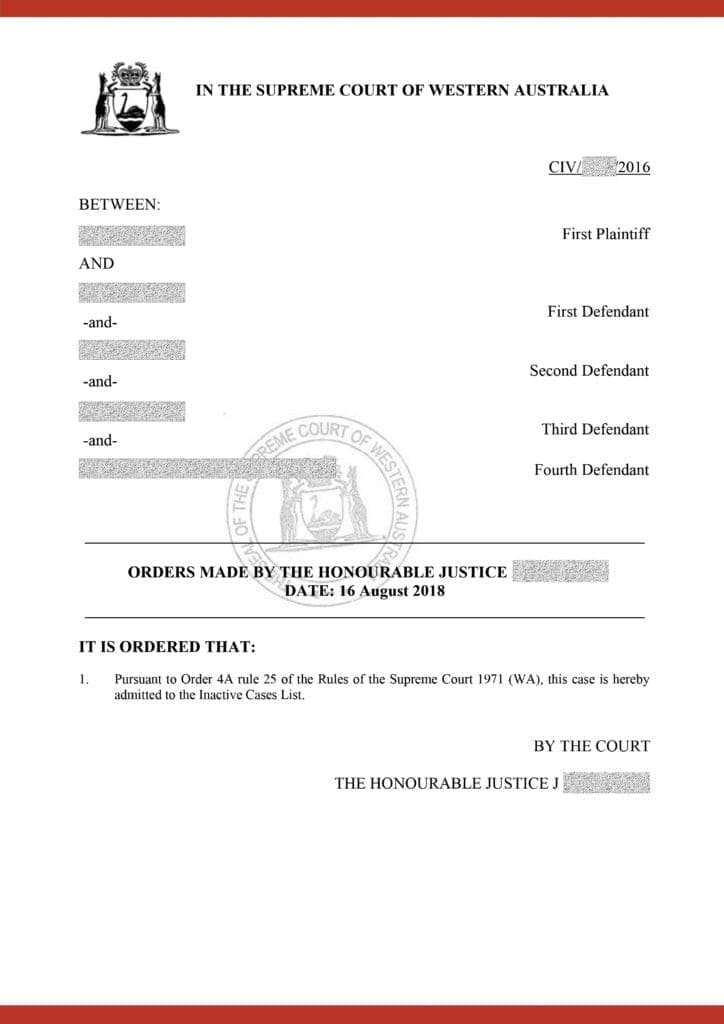“I’ve lived here my whole life, why should I apply for Australian citizenship?”
This is a common question we receive from our clients when the subject of citizenship is raised in the course of providing migration assistance.
For many of our clients who have lived in Australia for the majority of their lives, it is hard to imagine a situation where this could change, and for them to imagine themselves as anything other than Australian, as in the recently reported case of Edward McHugh.
The answer to this question is quite shocking. Since the amendments to the Migration Act 1958 (“the Act”), passed in December 2014, there has been an alarming increase in the number of visa cancellations, in the order of 1400%.
The Department of Home Affairs’ powers to cancel visas are extremely broad. Cancellations under Section 116(1)(e) of the Act, on the basis that the visa holder’s continued presence in Australia is a threat to a segment of the community or good public order, are becoming more and more common, and enable the Department to cancel visas before a finding of criminal guilt is even determined.
Meaning that you could have your visa cancelled before even being found guilty of the offence you are being charged with, and even if you are acquitted at trial, an application for merits review before the Administrative Appeals Tribunal (AAT) is required to reverse the consequential visa cancellation.
This is in addition to the powers under Section 501 of the Act to automatically cancel visas upon the finding of criminal guilt, where you are sentenced to a period of imprisonment of a period of 12 months or more, and which may come with a lifetime ban from re-entering Australia. This ground has been used to cancel the visas of over 1,000 New Zealand citizens over the last two years.
To ensure that a heavy price is not paid for what can often be “one mistake”, a grant of Australian Citizenship is the best safeguard you can obtain to make sure you are not deported from the place where you have expended so much energy to make your home.
Am I Eligible for Australian Citizenship?
The eligibility requirements are fairly straightforward:
- Satisfy the residency requirement: Be present in Australia for at least 4 years prior to the application, and present as a Permanent Resident for at least 12 months prior to the application.
- Satisfy the “Character Test”: In order to be successful, you must demonstrate that you have obeyed the laws of Australia over your residence, and that you possess the moral qualities that the Australian community would expect of those wanting to become citizens.
- Permanent Residency: This is the most challenging aspect for someone to wanting to become an Australian Citizen to overcome. for this, you must either –
- Hold a Residence visa, allowing you to remain in Australia indefinitely; or
- In the case of New Zealand Citizens, be present in Australia on, or prior to 26 February 2001.
Although the close diplomatic ties between New Zealand and Australia entitle New Zealand Citizens to a Special Category (Subclass 444) Visa, which enables them to remain in Australia for as long as they choose with unlimited work and study rights, this is only a temporary visa, and those wishing to obtain Australian Citizenship must look to obtaining Permanent Residency first.
There are also various exceptions, which may be available to you if you do not strictly meet the eligibility criteria. For more information on these options, contact us for more information.
Certain additional requirements may be imposed by reason of age and mental capacity. For more information on these requirements, contact our office.
I Have Previous Convictions In Australia or My Home Country, Am I Still Eligible?
The matter of character is more complicated in the context of Applications for Australian Citizenship, the answer is, it depends, but you may still be eligible for Australian Citizenship.
The “character test” for citizenship is more concerned with someone’s behaviour as a whole, and whether an overall assessment of the individual’s conduct is conducive to the view that the person exhibits the moral qualities the Australian Community would come to expect from them.
This is an assessment, which would come down to an assessment of the individual facts of each case.
For more information about applying for Australian Citizenship, appealing from decisions to refuse an application for Australian Citizenship, permanent residency, character concerns, and any other enquiry you may have in relation to the process of applying for Australian Citizenship, we strongly encourage you to contact our experienced migration lawyers for a discounted initial consultation to obtain assistance for your citizenship matters.
[gap height=”30px”][divider width=”full”][gap height=”30px”]
ABOUT THE WRITER
Stephen Mintz joined Tang Law in November 2017 and was admitted at the Supreme Court of Western Australia as Barrister and Solicitor in 2018. Stephen enjoys working in environments that allow him to use all areas of legal knowledge at his disposal to assist and guide clients to develop creative, practical and effective means to achieve their aims.
Stephen has extensive experience in assisting with the provision migration advice in connection with visa applications, as well as, appealing cancelled or refused visas, including, the preparation of relevant documents and submissions for applications for merits review before the Administrative Appeals Tribunal. He has extensive experience in advising clients in the areas of Commercial Law, Criminal Law, and Civil Litigation matters before the Supreme and District Courts of Western Australia, as well as, the Federal Court of Australia.








